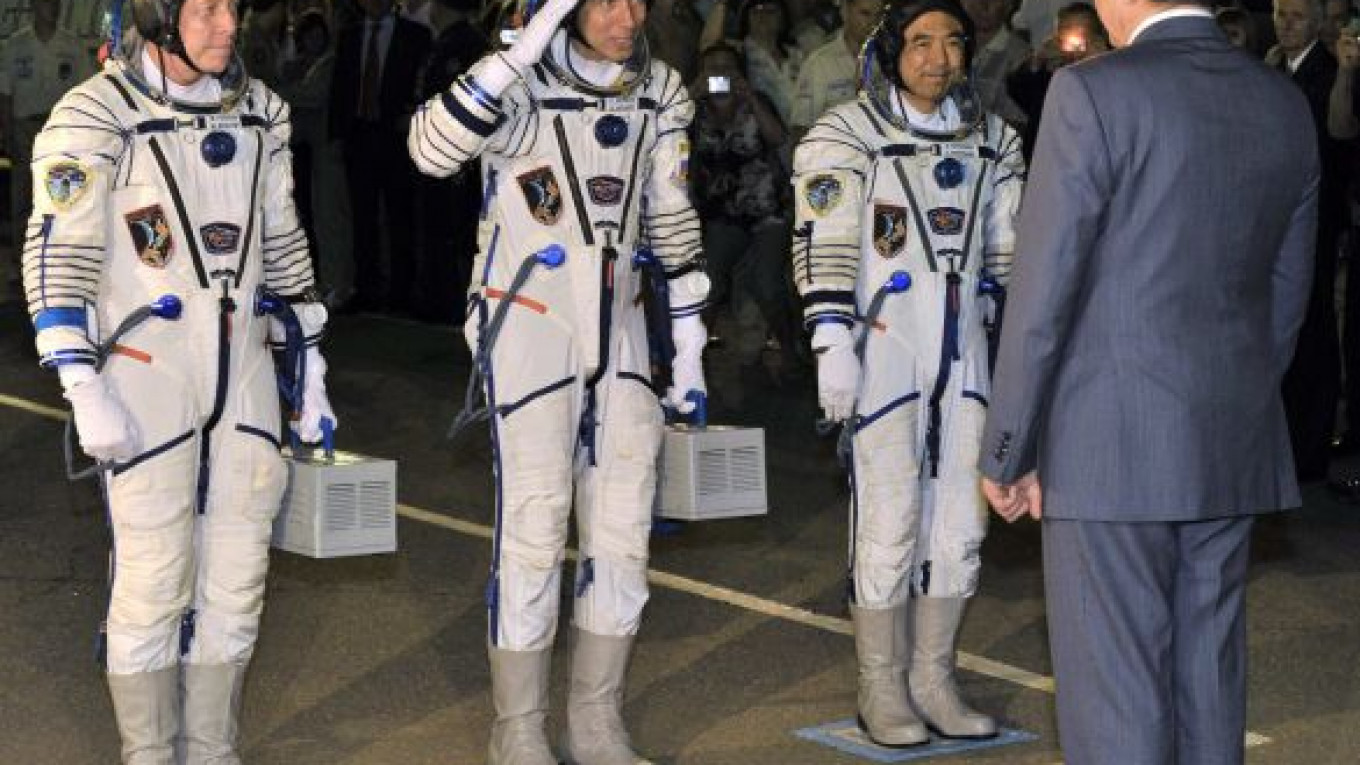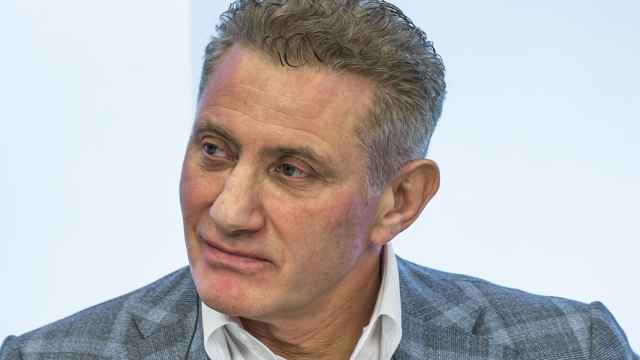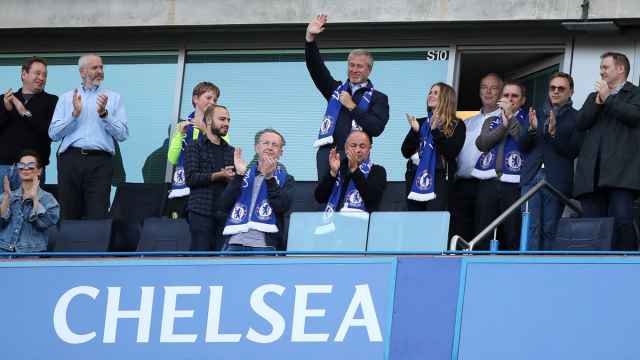BAIKONUR, Kazakhstan — A Soyuz craft lit up the starry skies of the southern Kazakh steppe early Wednesday as it blasted off to carry a three-man crew for a mission to the International Space Station that will take in the U.S. shuttle's farewell voyage.
Cosmonaut Sergei Volkov, NASA's Michael Fossum, and Satoshi Furukawa of Japan's JAXA space agency will spend almost two days squeezed into the cramped Soyuz capsule before docking with the space station, where they will remain until mid-November.
By being present on the space station as the shuttle performs its final voyage, Fossum and fellow NASA astronaut Ron Garan will play leading roles in the closing act of the program.
"They're going to be very proud to be part of the last shuttle dock mission. It's obviously going to be a sad time for all of us to see the end of the program," said NASA colleague Jeff Williams, who accompanied Fossum's family during their stay in Baikonur.
Overnight, however, all attention was on the spectacle of the simple and powerful Soyuz performing its duties.
At 2:15 a.m. Wednesday, the ferocious roar of rockets echoed around the desolate expanses of the Russian-leased Baikonur space launch site as the Soyuz capsule was propelled into the heavens, delighting the astronauts' families, friends and colleagues.
Furukawa gave a thumbs-up sign as the rocket charged into low orbit at speeds approaching 23,000 kilometers per hour, and a soft toy began to float, indicating zero gravity.
"We feel just great," Volkov said in answer to a question from Mission Control outside Moscow.
Within seconds, the phosphorous white intensity of the heavens above the Central Asian plains faded and the Soyuz blended into the stars.
Among the spectators at the viewing platform was JAXA astronaut Soichi Noguchi, who last year also did a six-month stint on the space station.
Speaking after the launch, he said Furukawa's mission could serve to lift his country's spirits after the earthquake that earlier this year devastated swathes of Japan.
"Now in Japan, there is not a lot of good news around, but I hope that by seeing Satoshi going up, the young people can feel they have a better future," Noguchi said.
Upon docking at the station, the crew will join the current station members — Garan and cosmonauts Andrei Borisenko and Alexander Samokutyayev.
This is the second run for the upgraded digital model of the Soyuz, which has served as the workhorse of the Russian space program for many decades.
While aboard the ISS, the team will witness the final mission of the U.S. shuttle, with NASA retiring the 30-year program after the shuttle Atlantis flies on July 8.
The mothballing of the shuttle evokes a palpable sense of melancholy among U.S. space professionals, and a comparable degree of pride among the Russians, who will be picking up the slack.
"Where five years ago we were launching just two [manned] craft every year, as of last year, we have started launching four crafts," Sergei Krikalyov, who heads Russia's Star City cosmonaut training center, said.
Patrick Buzzard, NASA's representative to Russia, said the two countries have relied on each other over the recent history of space exploration and that nothing was set to change.
"It is such a strong partnership, and we have these capabilities that everyone brings to the table. That makes it a more robust program," Buzzard said.
While NASA devises ways to replace its shuttle fleet, the privately run California-based space transportation company SpaceX is developing the Dragon craft that NASA hopes could offer it another — possibly less costly — alternative.
The $56 million price that the Federal Space Agency charges NASA to send up astronauts is set to go up to $63 million per passenger from 2014. A recent contract extension with the agency totaled $753 million and covered trips for a dozen NASA astronauts from 2014 through 2016.
A Message from The Moscow Times:
Dear readers,
We are facing unprecedented challenges. Russia's Prosecutor General's Office has designated The Moscow Times as an "undesirable" organization, criminalizing our work and putting our staff at risk of prosecution. This follows our earlier unjust labeling as a "foreign agent."
These actions are direct attempts to silence independent journalism in Russia. The authorities claim our work "discredits the decisions of the Russian leadership." We see things differently: we strive to provide accurate, unbiased reporting on Russia.
We, the journalists of The Moscow Times, refuse to be silenced. But to continue our work, we need your help.
Your support, no matter how small, makes a world of difference. If you can, please support us monthly starting from just $2. It's quick to set up, and every contribution makes a significant impact.
By supporting The Moscow Times, you're defending open, independent journalism in the face of repression. Thank you for standing with us.
Remind me later.






